Publications
Articles, publications, books, tools and multimedia features from the U.S. Institute of Peace provide the latest news, analysis, research findings, practitioner guides and reports, all related to the conflict zones and issues that are at the center of the Institute’s work to prevent and reduce violent conflict.
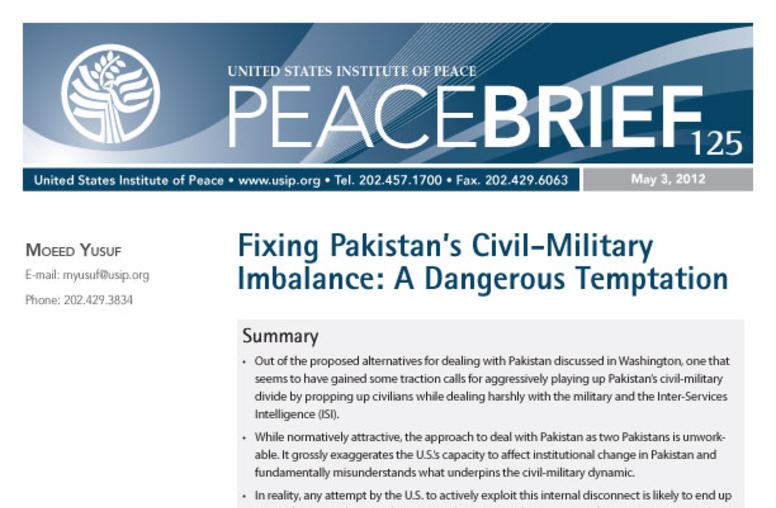
Fixing Pakistan’s Civil-Military Imbalance: A Dangerous Temptation
This report focuses on one of the central debates on Pakistan in Washington: how to deal with this troubled and troubling ally in the months and years ahead. While views are divided, the rising frustrations with Pakistan have led many to lose patience and seek a stern response from the U.S. The author, USIP’s South Asia adviser, addresses a misconception regarding Pakistan’s civil-military relationship and the potential for the U.S. to make this the basis of engagement with Pakistan.
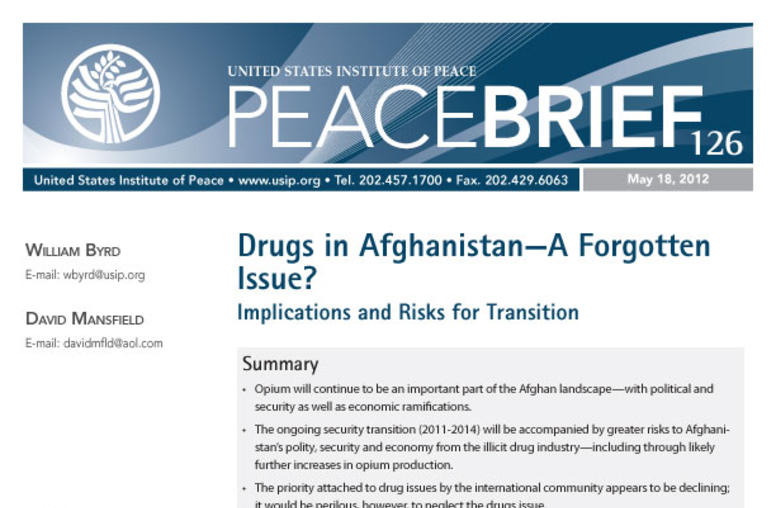
Drugs in Afghanistan—A Forgotten Issue?
This paper reflects both authors' concern that neglect of the opium economy in coming years could be perilous, exacerbate problems, possibly lead to poorly thought-out knee-jerk reactions and/or simplistic responses which would only worsen the situation, and further damage the prospects for success of what will inevitably be a difficult and challenging process of transition in Afghanistan.
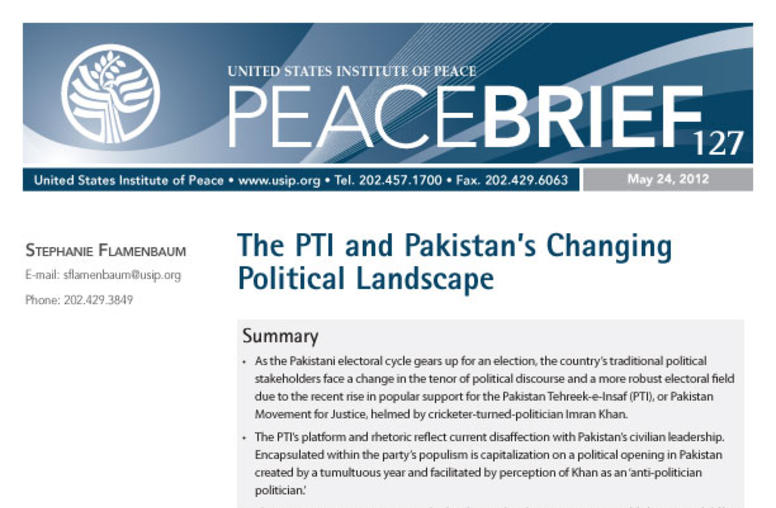
The PTI and Pakistan’s Changing Political Landscape
This brief examines changes in the Pakistani political landscape in advance of the country’s election, expected in early-2013.
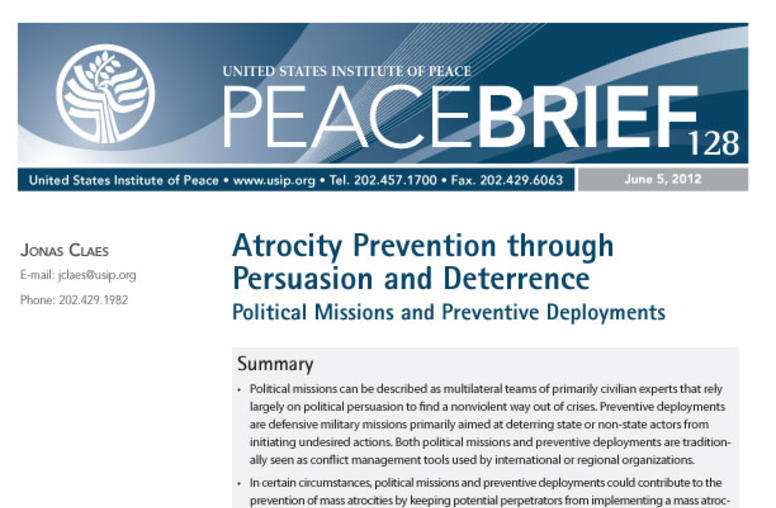
Atrocity Prevention through Persuasion and Deterrence
This Peace Brief describes the key findings and conclusion from a working session organized by USIP on April 5, 2012. The brief serves as input for the U.N. Secretary-General’s report in advance of the U.N. General Assembly’s interactive dialogue on Pillar III tools this summer.
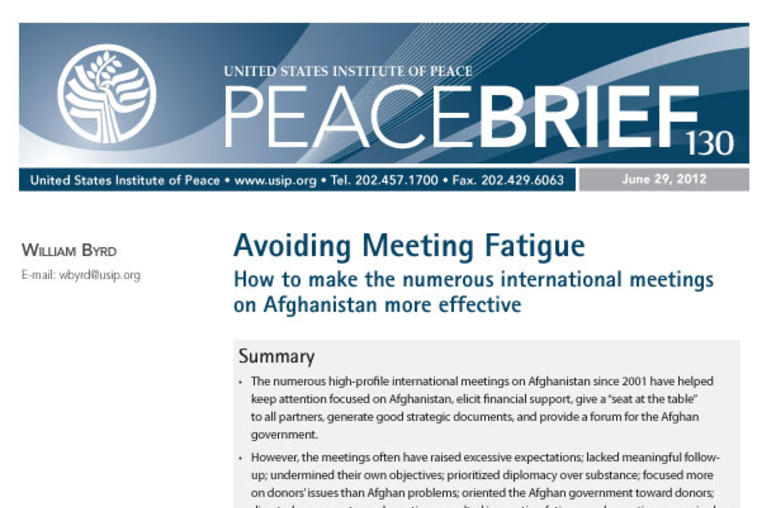
Avoiding Meeting Fatigue
This paper is based on the author's participation in and involvement with the preparations for many of the high-profile international meetings on Afghanistan over the past 10-plus years and reflects his concerns about their shortcomings and the excessive expectations typically associated with them.
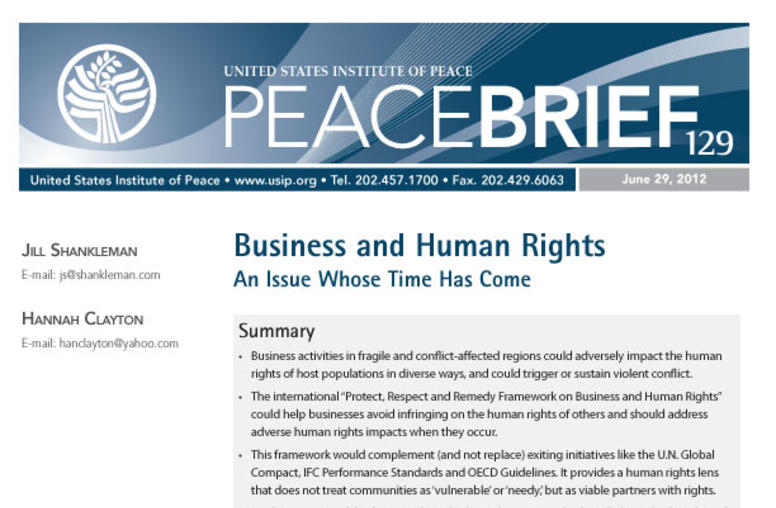
Business and Human Rights
USIP’s Center for Sustainable Economies hosts a taskforce on business and peace, which explores creative and effective ways in which the corporate sector could avoid fomenting conflict while being aware of actions that could promote peace. This report contributes to the work of the task force by using a conflict-sensitive framework to address this issue.
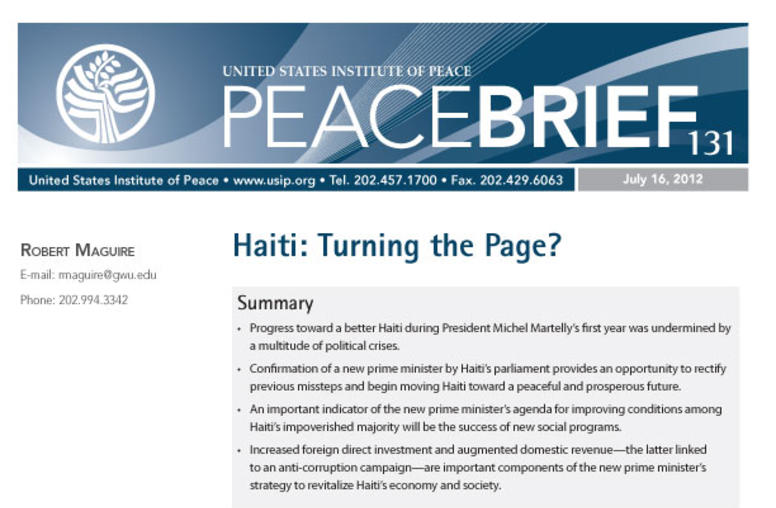
Haiti: Turning the Page?
Confirmation of a new prime minister by Haiti’s parliament provides an opportunity to rectify previous missteps and begin moving Haiti toward a peaceful and prosperous future.
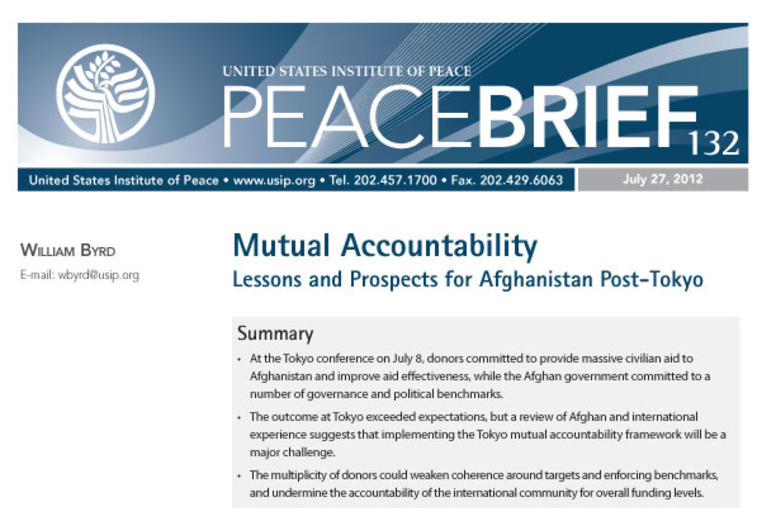
Mutual Accountability
This paper builds on remarks on mutual accountability at the July 18 U.S. Institute of Peace panel discussion “From Transition to the Transformation Decade: Afghanistan’s Economic and Governance Agenda after Tokyo” (second session on “Filling the trust gap—what does ‘mutual accountability’ mean, what are the first steps, what is the role of civil society?”). The views expressed in this brief do not necessarily reflect the views of the U.S. Institute of Peace, which does not take policy positi...
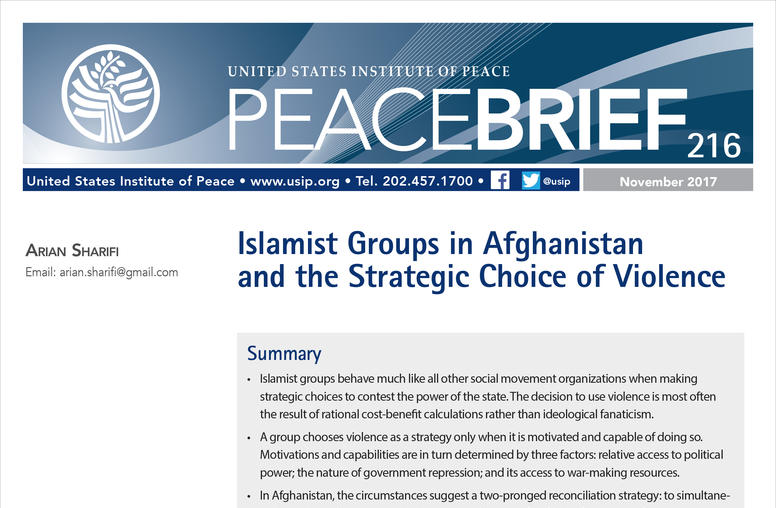
Islamist Groups in Afghanistan and the Strategic Choice of Violence
What causes established nonviolent groups to turn into violent organizations, and what leads organized violent groups to shun violence, even temporarily, and work within established political systems? This Peace Brief, which relies on in-depth interviews and primary source documents, explores the strategic choices Islamist groups in Afghanistan have made and make in using violence to contest government authority.
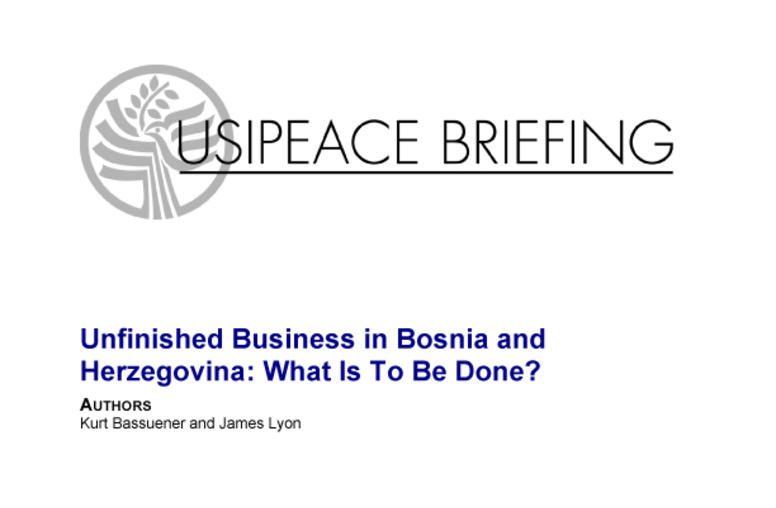
Unfinished Business in Bosnia and Herzegovina: What Is To Be Done?
This is the first of three papers USIP will publish this month on Bosnia, each with a different analytical perspective on what is happening in Bosnia and what needs to be done there to prevent a return to violence. We do this in the hope that these papers will generate a fuller debate on options that might be pursued by the U.S. government (USG), Europe and Bosnians.